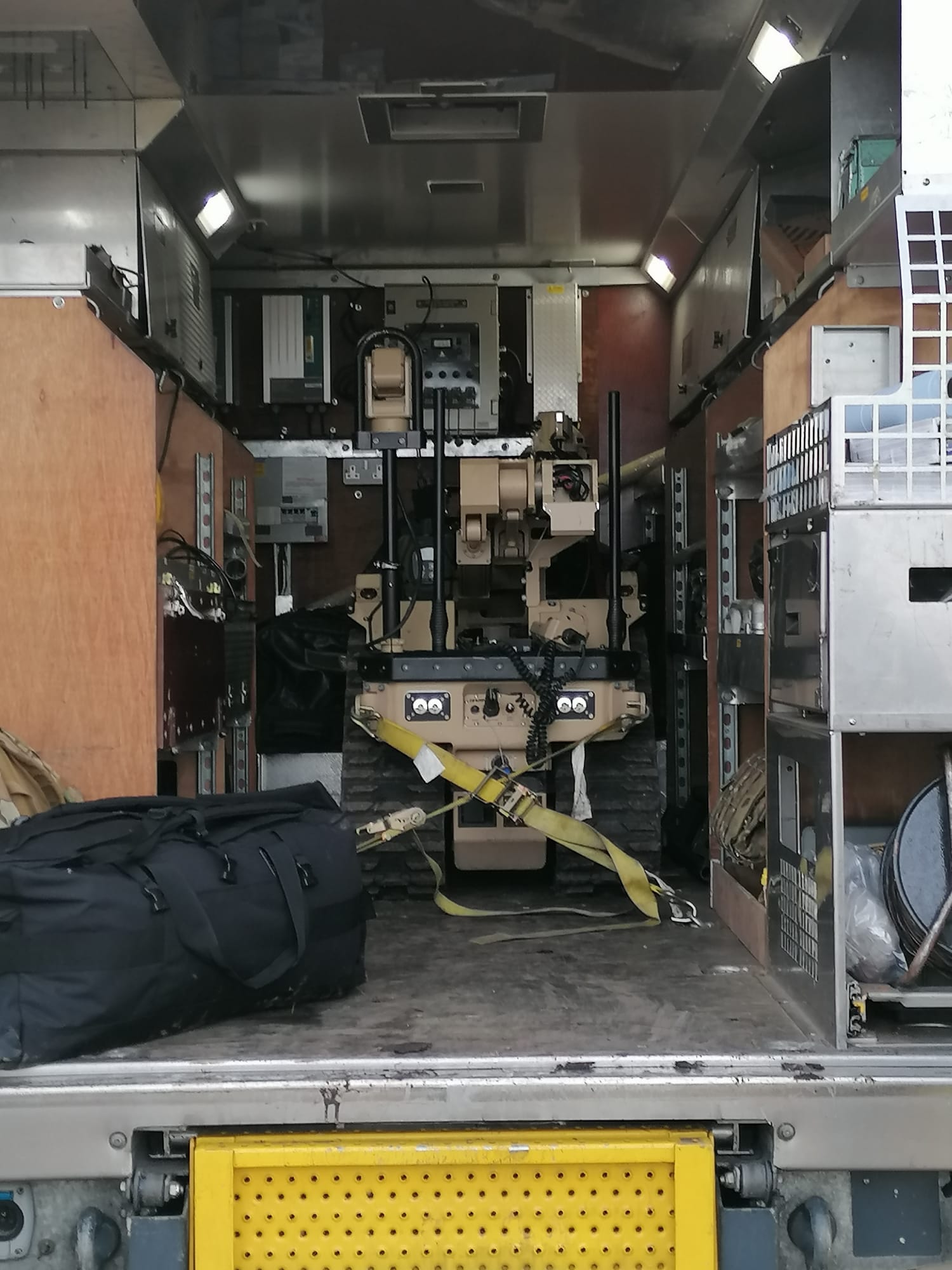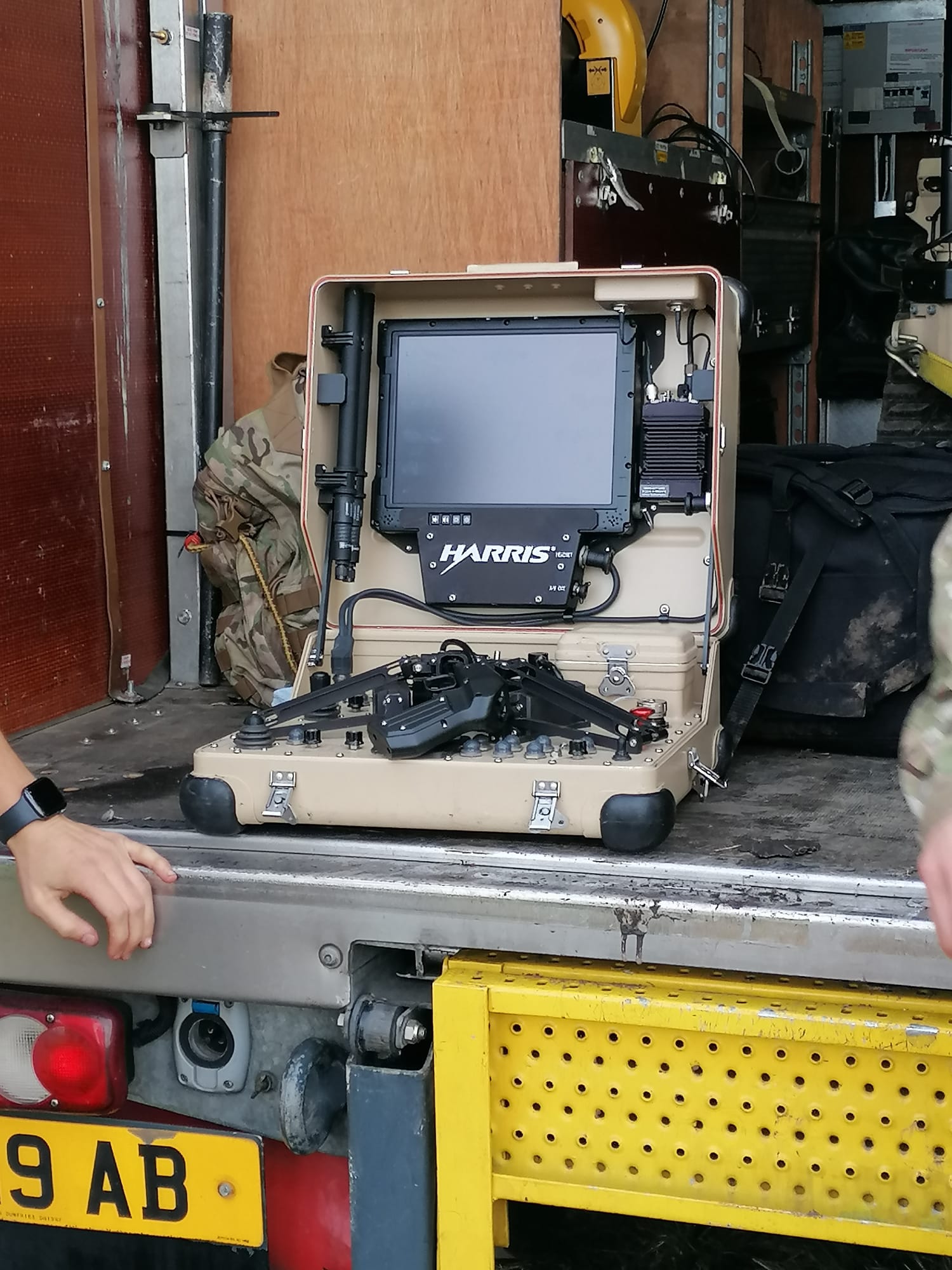Please tell me they call the robot “Arthur”.They opened the van and showed us the bomb robot very cool.
You are using an out of date browser. It may not display this or other websites correctly.
You should upgrade or use an alternative browser.
You should upgrade or use an alternative browser.
Unexploded artillery round?
- Thread starter BUDFORCE
- Start date
More options
Thread starter's postsIt's name is Jonny5Please tell me they call the robot “Arthur”.
It's name is Jonny5
It did look a bit like it!
Go and watch Bluestone 42.It's name is Jonny5
The MOD are still there this morning, I can see their vehicles parked up the track.
No bang last night though.
Would they even do an explosion overnight? Unless it was deemed unsafe and at risk of exploding any second. But if it's been sat there for many decades, leaving it till the following morning seems more likely.
Caporegime
- Joined
- 8 Jan 2004
- Posts
- 33,002
- Location
- Rutland
So walked up to the MOD, 2 guys there.
They said it was a training round so reasonably inert although there is still some charge in it, they are going to take it back and dispose of it properly.
The only reason they were still there this morning is the clutch on their van broke so they are waiting for it to be fixed. They opened the van and showed us the bomb robot very cool.
Nice lads, that's cool of them.
Associate
- Joined
- 7 Mar 2015
- Posts
- 1,122
- Location
- London
Glad you are ok OP.
Don't tell me what to doGo and watch Bluestone 42.

Wait, isn't that you telling me what to doDon't tell me what to do


http://www.google.com/search?q=bluestone+42+bird+arthur

 !
!Never seen it. Looks terrible. I prefer the not so subtle racist tones of Jonny5
I always wonder why anyone thinks that a bomb from either 100yrs ago or like 80years ago won't have degraded so badly that they would still explode. I appreciate being sensible and cautious but is it entirely necessary?
Anyone with a chemistry degree like to enlighten me on how nearly a century of degradation doesn't make these things more useless than the time they failed to go off?
Does ammonium nitrate or TNT somehow remain explosive?
lots of explosives can easily survive a 100 years if they are away from light/heat and water.
I always wonder why anyone thinks that a bomb from either 100yrs ago or like 80years ago won't have degraded so badly that they would still explode. I appreciate being sensible and cautious but is it entirely necessary?
Anyone with a chemistry degree like to enlighten me on how nearly a century of degradation doesn't make these things more useless than the time they failed to go off?
Does ammonium nitrate or TNT somehow remain explosive?
They're dangerous alright...
https://www.bbc.co.uk/news/10212890
https://www.bbc.co.uk/news/world-europe-25594000
Caporegime
- Joined
- 8 Jan 2004
- Posts
- 33,002
- Location
- Rutland
I always wonder why anyone thinks that a bomb from either 100yrs ago or like 80years ago won't have degraded so badly that they would still explode. I appreciate being sensible and cautious but is it entirely necessary?
Anyone with a chemistry degree like to enlighten me on how nearly a century of degradation doesn't make these things more useless than the time they failed to go off?
Does ammonium nitrate or TNT somehow remain explosive?
"Boosted by false assumptions about explosives and ignorance of historical facts, the dangers posed by unexploded ordinance are frequently underestimated. “Contrary to what many people seem to think,” explains Bodes, “the explosives in the bombs haven’t lost any of their potency. The timescale for TNT to be broken down chemically is measured in millennia. Since the end of the war, there have been around 100 spontaneous detonations of undiscovered time-delay devices, so ‘letting sleeping dogs lie’ is not a sound principle.”"
https://www.theguardian.com/cities/2018/apr/23/allied-bombs-still-threaten-hamburg-ww2
A munitions ship sank during WW2 just offshore from a place fairly close to where I lived as a kid. I used to cycle there quite often because in those days a 40 mile bike ride didn't seem all that much to me. The ship contained several thousand tonnes of high explosives, so if it went up it would be on a scale more commonly associated with nukes. It's still there because nobody has been able to come up with a way to dispose of it safely. It's probably inert now, but nobody knows for sure. And that's after 80 years in mud and silt and seawater.
I'm pretty sure the ship was the Montgomery. I remember that because of Scotty from Star Trek
Found it...https://en.wikipedia.org/wiki/SS_Richard_Montgomery
When I was a kid we all used to go down the beach and throw stones in it’s direction to see if we could get it to go boom….. Couldn’t get anywhere near it but it was fun trying…….lol
It’s only the equivalent of about 1400 tonnes of TNT……
Top tip - if you're diving in the channel and find a metal cylinder with some white stringy stuff in it, don't bring it back on the boat to show your mates. It'll dry out and the 'white stringy stuff' (or phosphorous to the rest of us) will start to fizz alarmingly before you chuck it back in the water and tell the Navy when you get back to shore.
Wasn't me, but a diving buddy....
Wasn't me, but a diving buddy....
I always wonder why anyone thinks that a bomb from either 100yrs ago or like 80years ago won't have degraded so badly that they would still explode. I appreciate being sensible and cautious but is it entirely necessary?
Anyone with a chemistry degree like to enlighten me on how nearly a century of degradation doesn't make these things more useless than the time they failed to go off?
Does ammonium nitrate or TNT somehow remain explosive?
Most of a bomb's filling is secondary explosive, ie a sensitive explosive mixed with an inert compound to make the explosive easier to handle. So it needs a detonator (primary explosive) to set the main filling off. You can drop a bomb without a fuse and it won't explode as it's that insensitive.
Now add a chunk of time and temperature variations, and the sensitive explosive starts to separate from the inert compound. You can get crystals forming round the cap covering the fuse pockets where the sensitive explosive is leeching out. Do not try and unscrew the cap.
after WW2 I bet a ton of kids died throwing rocks at things they shouldn;t
Just need to look at butterfly bombs and how much of a menace they were




